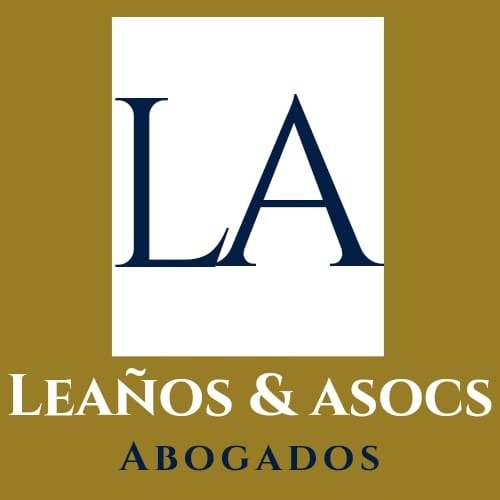Best Debt & Collection Lawyers in Santa Cruz
Share your needs with us, get contacted by law firms.
Free. Takes 2 min.
List of the best lawyers in Santa Cruz, Bolivia
About Debt & Collection Law in Santa Cruz, Bolivia
Debt & Collection law in Santa Cruz, Bolivia, revolves around various local and national regulations that govern the relationships between creditors and debtors. This legal area ensures that debt recovery processes adhere to established legal standards, protecting both parties involved. The objective is to facilitate fair and just debt recovery processes while safeguarding debtor rights against unfair or abusive practices. The complexity of these laws may vary based on the nature of the debt, the parties involved, and the amount in question.
Why You May Need a Lawyer
Engaging a lawyer specializing in Debt & Collection can be crucial for several reasons. Common situations include receiving harassing calls from debt collectors, facing a lawsuit for unpaid debts, or needing to collect a significant debt owed by another party. A lawyer can help interpret and navigate the complexities of local laws, ensure compliance with all legal obligations, and advocate for your rights and interests during disputes. Legal representation can also be essential in negotiating settlements or payment terms that are manageable and fair.
Local Laws Overview
The debt and collection landscape in Santa Cruz is shaped by both local and national legislation, including the Bolivian Civil Code and specific banking and financial regulations. Key aspects include the statutory requirements for written agreements in commercial transactions exceeding a certain value, the formal procedures required for debt enforcement, and the permissible practices for debt recovery by creditors and third-party collection agencies. Additionally, consumer protection laws prohibit unfair collection tactics such as harassment or threats. Understanding these laws is vital for both creditors seeking repayment and debtors striving to protect their rights.
Frequently Asked Questions
What should I do if a debt collector contacts me?
If contacted by a debt collector, it's important to verify the legitimacy of the claim and ensure the collector's identity. You may request written validation of the debt. Consulting a lawyer can help you respond effectively.
Can a debt collector contact me at any time?
No, debt collectors must adhere to fair practice guidelines that typically prevent unreasonable or inconvenient hours of contact. Understanding these guidelines can help you manage their communications.
What is the statute of limitations for collecting debts in Bolivia?
The statute of limitations varies by the type of debt. It's generally important to confirm specific time limits with a legal professional to understand whether a debt can still be legally pursued.
Are there legal protections against harassment by debt collectors?
Yes, Bolivian laws provide protections against abusive and harassing collection practices. If you experience such behavior, a lawyer can help you take appropriate action.
Do I have to pay off debts during ongoing disputes?
It depends. If a debt is legitimately in dispute, paying it may not be required until the dispute is resolved. Seek legal advice to ensure you handle such situations correctly.
Can a creditor access my financial or banking information?
Not without your permission. Your financial privacy is generally protected unless revealed under legal proceedings or with consent.
What if I can't afford to pay my debts?
If you face financial difficulties, negotiating new payment arrangements may be a viable option. Legal professionals can assist in achieving manageable solutions.
Is it possible to negotiate a debt reduction?
Yes, negotiation is often possible, especially if you can demonstrate an inability to pay the full amount. Lawyers can facilitate these discussions more effectively.
How are court judgments enforced for unpaid debts?
The process involves legal proceedings where the court may authorize actions such as wage garnishments or asset seizures. Legal advice is crucial to navigating these scenarios.
What steps can I take if I wrongly receive a creditor's demand?
Contact the creditor for clarification. If the issue remains unresolved, legal representation can help rectify the situation and assert your rights.
Additional Resources
For those seeking further information or assistance, consider contacting the Autoridad de Supervisión del Sistema Financiero (ASFI) for financial regulations, or the Defensoría del Consumidor for consumer rights guidance. Legal aid organizations and local bar associations in Santa Cruz may also provide support or referrals.
Next Steps
If you need legal assistance concerning Debt & Collection in Santa Cruz, Bolivia, consider the following steps: First, gather all relevant documentation concerning your case, including correspondence with creditors or collection agencies. Contact a qualified lawyer specializing in debt and collection law to discuss your situation. They can offer guidance on your rights, potential defenses, and the best course of action to achieve a desirable outcome.
Lawzana helps you find the best lawyers and law firms in Santa Cruz through a curated and pre-screened list of qualified legal professionals. Our platform offers rankings and detailed profiles of attorneys and law firms, allowing you to compare based on practice areas, including Debt & Collection, experience, and client feedback.
Each profile includes a description of the firm's areas of practice, client reviews, team members and partners, year of establishment, spoken languages, office locations, contact information, social media presence, and any published articles or resources. Most firms on our platform speak English and are experienced in both local and international legal matters.
Get a quote from top-rated law firms in Santa Cruz, Bolivia — quickly, securely, and without unnecessary hassle.
Disclaimer:
The information provided on this page is for general informational purposes only and does not constitute legal advice. While we strive to ensure the accuracy and relevance of the content, legal information may change over time, and interpretations of the law can vary. You should always consult with a qualified legal professional for advice specific to your situation.
We disclaim all liability for actions taken or not taken based on the content of this page. If you believe any information is incorrect or outdated, please contact us, and we will review and update it where appropriate.








